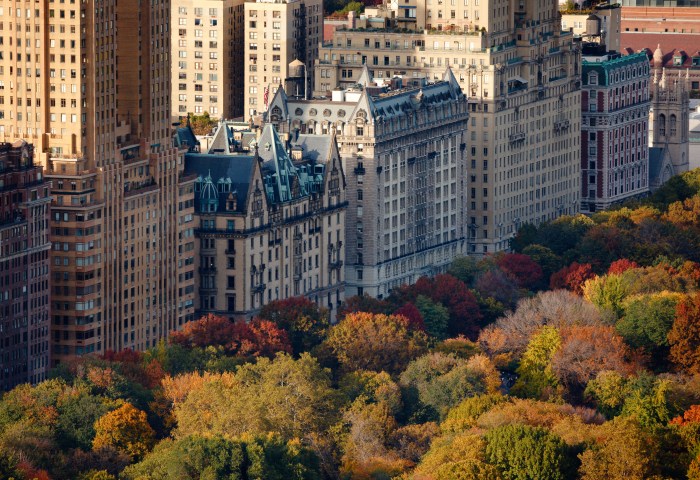By Daniel Massey
A traditional kitchen that fed thousands of people each week at the temporary quarters of the Sikh Cultural Society was shuttered by the city Buildings Department Monday afternoon because it lacked fire safety devices.
Two inspectors arrived at the temple’s temporary headquarters at 95-16 118th St. in Richmond Hill shortly after 3 p.m. Monday afternoon and taped a vacate order to the door of the kitchen that said it posed an “imminent danger to the safety of the occupants.”
The illegal commercial kitchen did not have an exhaust or fire suppression system, according to the order.
The cinder block kitchen was part of a two-family home hurriedly converted into a temporary house of worship after the Sikh Cultural Society’s temple was destroyed by a fire March 8. The kitchen, as well as a long prayer hall and entryway, were added on to the home.
The kitchen served the traditional meal known as “langar,” which is an integral part of the Sikh prayer service, to as many as 5,000 people each week.
“Serving the people is part of our religion,” said Harpreet Singh Toor, chairman of the Sikh Cultural Society. “If food is not cooked and served, then services are not complete.”
Temple officials were surprised the city had shut down the kitchen because they had met with Queens Borough Commissioner of Buildings Magdi Mossad Monday morning and said he gave them a week to present architectural plans for additions to the converted temple. No mention was made of the kitchen during the meeting, they said.
“We were given the time to submit plans by Monday,” protested one temple official as an inspector instructed a KeySpan worker to shut off the gas to the building. “We had a meeting with the commissioner.”
Ilyse Fink, a spokeswoman for the Buildings Department, said the extra time was given to the temple to present plans for the entire building, which was being constructed illegally. The kitchen had to be shut down immediately because it lacked a fire suppression system, she said.
“We’re trying to minimize the possibility of a fire hazard,” she said. “We understand the situation they’re in, but they do have to do things to make the building lawful.”
The Buildings Department was first called to the converted temple July 16 after complaints were received that construction was taking place without a permit and that illegal plumbing work was being done, according to the department’s web site. Inspectors found the proper permit had been obtained, but issued violations for illegal ground floor gas, water and waste lines, the site said.
Then after another complaint was lodged, inspectors returned Friday, prompting the Monday morning meeting with Mossad.
In addition to scrambling to make plans for the traditional meal, temple members expressed anger because the two inspectors refused to remove their shoes or cover their heads, prerequisites for entering the Sikh shrine. One of the inspectors lit up a cigarette on temple property Friday and despite being rebuked did so again Monday, the members said.
Fink said inspectors were required to keep their shoes on for safety reasons.
While the kitchen remains closed, Toor said meals would be prepared in private homes and brought to the temple.
The problems with their temporary home came as plans to rebuild the original building were being finalized. Demolition of the burned structure could begin within a month and a Chicago architect who has designed Sikh temples in the United States, Canada and India was chosen to come up with a plan for the new house of worship.
Reach reporter Daniel Massey by e-mail at Timesledger@aol.com or call 229-0300, Ext. 156.

































